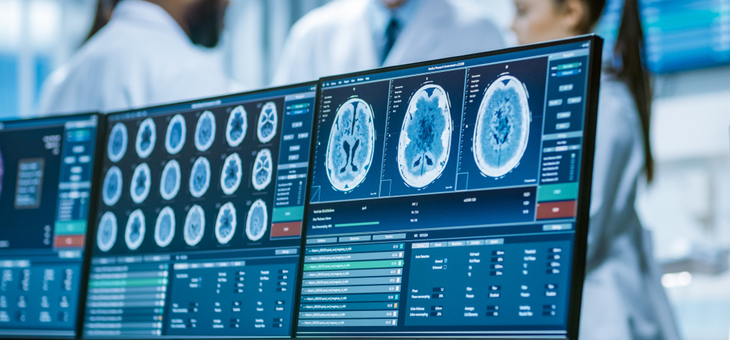Like something out of a science fiction movie, researchers have developed a way to scan brain images for early signs of Alzheimer’s disease with an accuracy of more than 99 per cent.
Alzheimer’s is the leading cause of dementia, with an estimated 24 million cases worldwide. The Australian Institute of Health and Wellbeing (AIHW) estimates that about 430,000 Australians are living with dementia and that Alzheimer’s is responsible for about 70 per cent of those cases.
The disease is expected to cost the Australian economy almost $19 million by 2025, with that number predicted to increase to almost $37 billion by 2056.
Early detection, as with most conditions, can make a big difference to treatment plans and outcomes. The current method for identifying Alzheimer’s in its early stages is functional magnetic resonance images (fMRIs) of the brain. Specialists then examine the images for changes associated with the disease.
Read: Study finds link between COVID and increased risk of Alzheimer’s
That’s a time-consuming task and requires specialist knowledge. But what if that could be delegated to a computer program? Could a computer complete the task more quickly and with more accuracy?
Researchers from the Kaunas University of Technology in Lithuania say they have developed an early detection method for Alzheimer’s using artificial intelligence (AI) ‘deep-learning’ techniques to examine fMRIs at a much faster rate than a specialist.
In layman’s terms, the researchers are using a computer (or network of computers) running a piece of code designed to scan fMRIs for signs of Alzheimer’s. But the really impressive bit is that as the AI scans more and more images and receives more data, it improves its accuracy by incorporating the new information into future scans.
“Medical professionals all over the world attempt to raise awareness of an early Alzheimer’s diagnosis, which provides the affected with a better chance of benefitting from treatment,” Modupe Odusami, PhD student and researcher on the project, told ScienceDaily.
Read: Reading, writing letters and card games can delay dementia
One of the early Alzheimer’s signs the AI is looking for is mild cognitive impairment (MCI). That can be difficult to diagnose as it is hard to tell the difference between decline due to regular ageing and early dementia. In its earliest stages, MCI may not produce symptoms, but changes will be evident in images of the brain.
“Modern signal processing allows delegating the image processing to the machine, which can complete it faster and accurately enough,” says lead researcher Professor Rytis Maskeliunas.
He says the algorithm could be developed into software, which would analyse the collected data from vulnerable groups (those over 65, with a history of brain injury, high blood pressure and so on) and notify the medical personnel about any anomalies related to the early onset of Alzheimer’s.
“Of course, we don’t dare to suggest that a medical professional should ever rely on any algorithm 100 per cent. Think of a machine as a robot capable of doing the most tedious task of sorting the data and searching for features.”
Prof. Maskeliunas hopes the breakthrough will make screening for Alzheimer’s and other dementia conditions cheaper and more accessible.
“Technologies can make medicine more accessible and cheaper. Although they will never (or at least not soon) truly replace the medical professional, technologies can encourage seeking timely diagnosis and help.”
Do you or a loved one suffer from Alzheimer’s? Would you have benefitted from early detection methods like this? Let us know in the comments section below.
If you enjoy our content, don’t keep it to yourself. Share our free eNews with your friends and encourage them to sign up.

